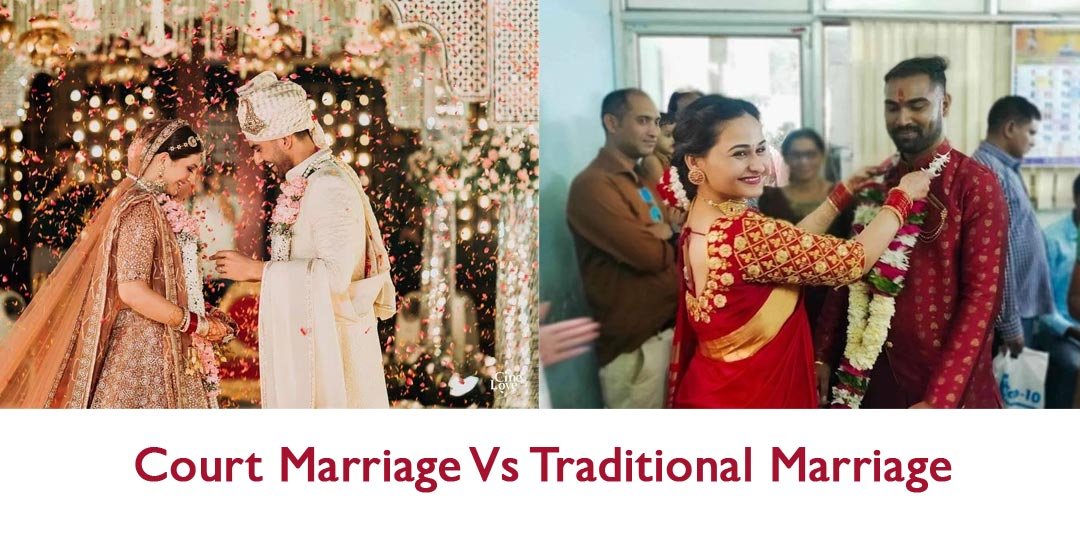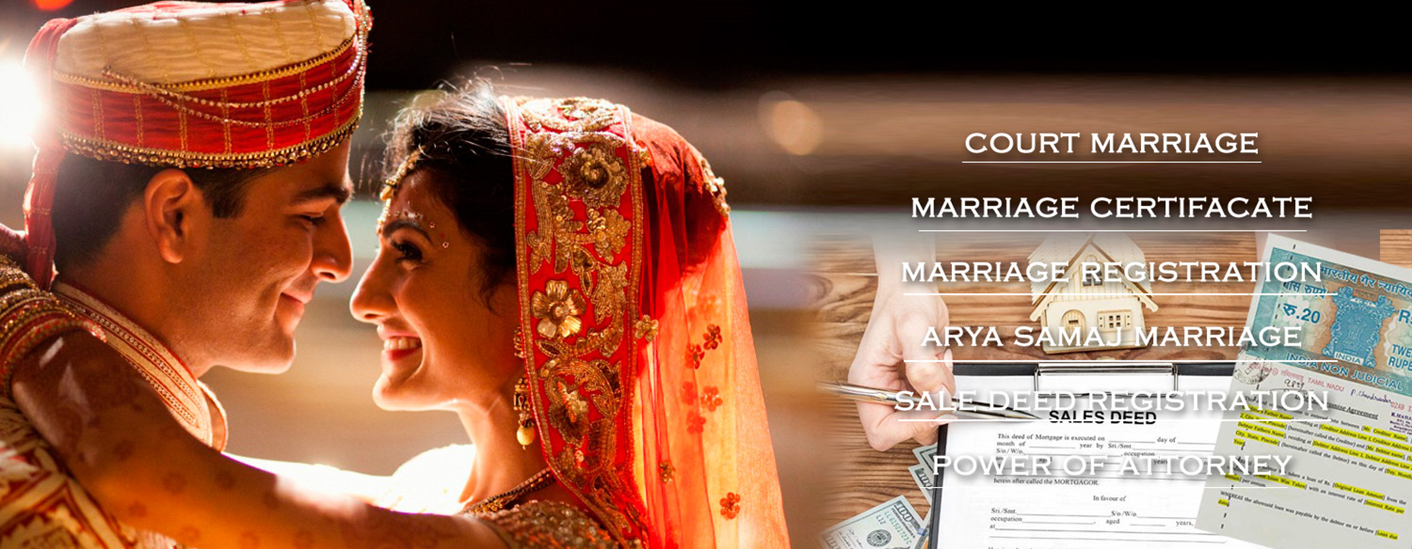Understanding the Distinction Between Court Marriage and Traditional Marriage Ceremonies

Marriage is a pivotal institution in societies worldwide, marking the union of two individuals and often symbolizing commitment, love, and partnership. However, the way in which marriages are solemnized varies greatly across cultures and legal systems. Two common methods of formalizing a marriage are through a court marriage and a traditional marriage ceremony. While both approaches achieve the same legal status of marriage, they differ significantly in terms of process, cultural significance, and legal implications.
Court Marriage:
Definition: A court marriage, also known as a civil marriage or registry marriage, is a legal procedure conducted at a courthouse or a similar government office. It involves minimal ceremonial aspects and focuses primarily on the legal requirements for marriage.
Process:
- Documentation: Couples must typically submit documentation such as identification, proof of age, residence, and marital status.
- Witnesses: Depending on jurisdiction, witnesses may be required to be present during the marriage ceremony.
- Legal Formalities: A government official, such as a judge or a registrar, conducts the marriage ceremony by reciting legal vows and administering oaths.
- Signing of Documents: Both parties, along with witnesses if required, sign legal documents to formalize the marriage.
Features:
- Minimalistic: Court marriages are often devoid of elaborate rituals, decorations, or religious customs.
- Legal Emphasis: The primary focus is on meeting the legal requirements for marriage rather than cultural or religious traditions.
- Accessibility: Court marriages are generally accessible to all couples regardless of religious or cultural background.
- Efficiency: They are often quicker and more straightforward than traditional marriage ceremonies, making them a popular choice for couples seeking simplicity and expedience.
Legal Implications:
- Recognition: Court marriages are legally recognized in most jurisdictions and afford couples the same rights and obligations as those married through traditional ceremonies.
- Documentation: Legal documents issued after a court marriage serve as proof of marriage for various administrative purposes, including visa applications, insurance claims, and inheritance matters.
Traditional Marriage Ceremonies:
Definition: Traditional marriage ceremonies vary widely across cultures and regions, encompassing diverse customs, rituals, and festivities that reflect the heritage and beliefs of the community.
Process:
- Preparation: Extensive planning and preparation often precede traditional marriage ceremonies, involving rituals such as engagement ceremonies, dowry negotiations, and pre-wedding festivities.
- Ceremonial Rites: The marriage ceremony itself may involve rituals, blessings, prayers, vows, and symbolic gestures specific to the cultural or religious traditions of the couple.
- Community Participation: Traditional weddings frequently involve the participation of family members, friends, and community members, who play various roles in the ceremony and celebrations.
- Feasting and Celebrations: Post-wedding festivities typically include feasting, music, dancing, and other forms of merriment, serving as a communal celebration of the union.
Features:
- Cultural Significance: Traditional marriage ceremonies hold deep cultural, religious, and social significance, often serving as a means of preserving cultural heritage and identity.
- Rituals and Symbolism: They are rich in symbolism, with each ritual and custom carrying specific meanings related to love, commitment, fertility, and prosperity.
- Community Involvement: Traditional weddings foster a sense of community and kinship, as they involve the participation and support of extended family members and the wider community.
- Emotional Experience: The ceremonial aspects of traditional weddings contribute to a deeply emotional and memorable experience for the couple and their loved ones.
Legal Implications:
- Validity: Traditional marriage ceremonies are legally recognized if they comply with the legal requirements of the jurisdiction in which they occur, such as obtaining a marriage license and having a qualified officiant oversee the ceremony.
- Documentation: Couples may receive a marriage certificate or similar documentation following the traditional ceremony, which serves as legal proof of their marital status.
While both court marriages and traditional marriage ceremonies result in the legal union of two individuals, they differ significantly in their processes, cultural significance, and ceremonial aspects. Court marriages emphasize legal formalities and efficiency, making them a popular choice for couples seeking a straightforward and accessible way to formalize their union. On the other hand, traditional marriage ceremonies are steeped in cultural, religious, and social customs, providing couples with a deeply meaningful and communal celebration of their love and commitment. Ultimately, the choice between the two depends on the preferences, cultural background, and personal beliefs of the individuals involved.
Contact us: Best Court Marriage Ghaziabad Lawyers

